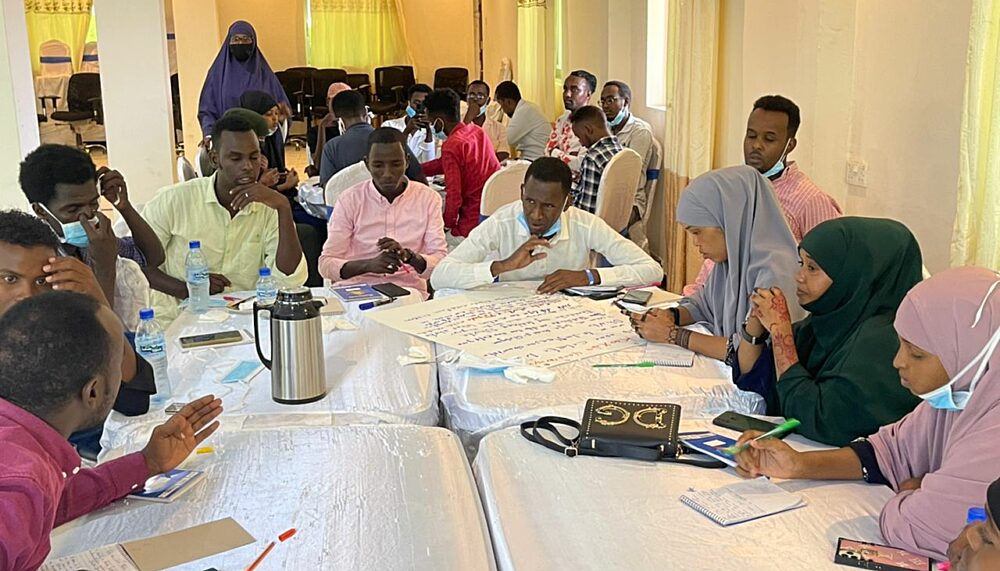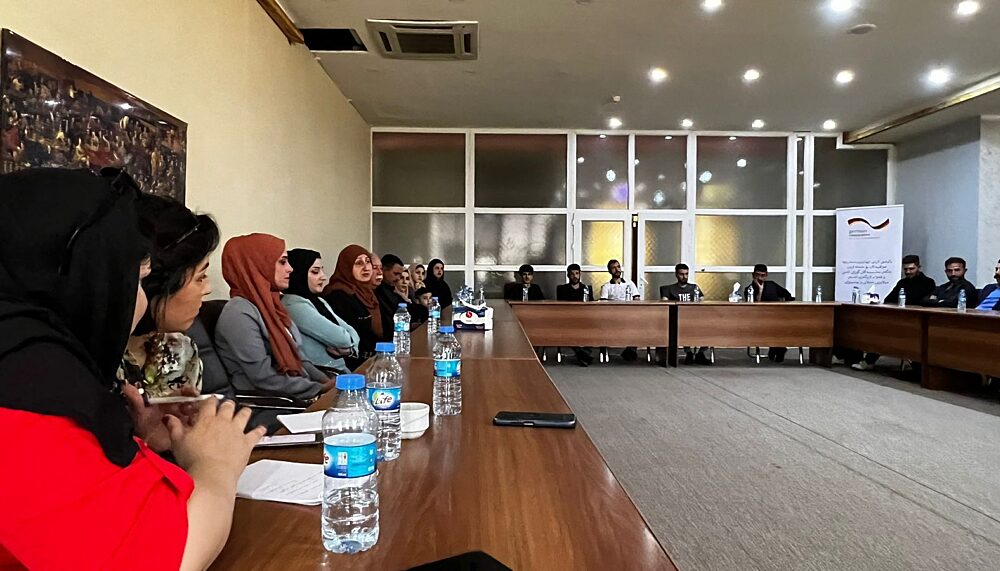Climate change
The long-term shifts in temperatures and weather patterns that lead to higher sea levels, droughts, and other natural disasters. It is the biggest challenge to humanity yet and impacts existing conflicts or even creates new ones – especially where resources such as water and arable land are becoming scarce. Yet, common concerns about its impact can also offer an entry point for bringing conflict parties to the negotiating table.

See also: Social grievance, conflict transformation, peacebuilding
Berghof has begun adapting its work to rise to the challenges of climate change, as many of the countries of focus – Afghanistan, Ethiopia, Iraq, Somalia, Sudan, Syria, Yemen, etc. – are situated in the worst-affected regions of the world. We are building expertise in the field to systematically include the identification of the effects of climate change in conflict analyses.
However, rather than becoming climate scientists ourselves we are building new alliances and networks that focus on climate change, which gives us access to the most recent knowledge and data for our analysis. This will help develop important synergies to contribute to a collective understanding of the conflict-climate change nexus.
With climate change being the all-encompassing threat it is, affecting almost every single aspect of life, one basically needs to rethink what one thought one knew on all topics, including human rights and conflict.
Andrew Gilmour
In our support for communities to transform violent conflict into peace, the Berghof approach has always been to avoid quick fixes and systematically address the root causes of conflict. With the challenges of climate change, we will need to strengthen this long-term perspective even further and develop methodologies to ‘climate-proof’ peace agreements.

This includes raising awareness among political leaders, influential individuals, insider mediators and negotiation teams about the long-term impacts of climate change in their regions. Once conflict parties and facilitators alike see the need to think beyond the present day in regard to climate change impacts, the next major challenge will be to develop and strengthen security mechanisms, resource management systems and political institutions in protecting the parties’ commitment to peace against the impacts of climate change and thus help avoid a relapse into violent conflict.
The Berghof Foundation’s strong desire to generate the necessary synergies to address these challenges has included the launch of the first pilot projects around the climate-conflict nexus. In Somalia, for instances, we cooperate with the Hirshabelle Insider Peacebuilders Network (IPN) to support communities developing a climate security action plan. Our current work in Iraq focuses on climate mediation efforts in different districts throughout the country previously weakened by years of political and armed conflict. Our work aims to integrate climate security risks into existing peacebuilding efforts.

Environmental degradation and other consequences of anthropogenic climate change is playing an increasingly larger role in all aspects of Berghof’s work. We believe that our approaches to conflict transformation – including global learning and peace education – will contribute to our understanding of climate change and help building individual capacities to transform climate conflicts in a non-violent way — on a personal, societal and international level.
Learn more
- No peace at COP30? Why that’s a risk the world can’t afford.
- Towards COP27: How COP can deliver for areas affected by conflict
- Towards COP27: Climate vulnerability demands conflict transformation approaches
- Time for climate-sensitive conflict transformation. Complex crises need complex responses
- Ways to mitigate the impact of climate change on conflict. Speech by Andrew Gilmour at the Human Rights and Science Symposium
- Climate and conflict as a vicious cycle. The case of Afghanistan
- Water, land and power. Environmental conflict drivers in Abyan, Yemen
- Entry points for climate finance and peacebuilding in Afghanistan
- Climate Change and Conflict in Hadhramawt and Al Mahra
- Decolonising peacebuilding. A way forward out of crisis
- Peacebuilding at a Crossroads? Dilemmas and Paths for Another Generation